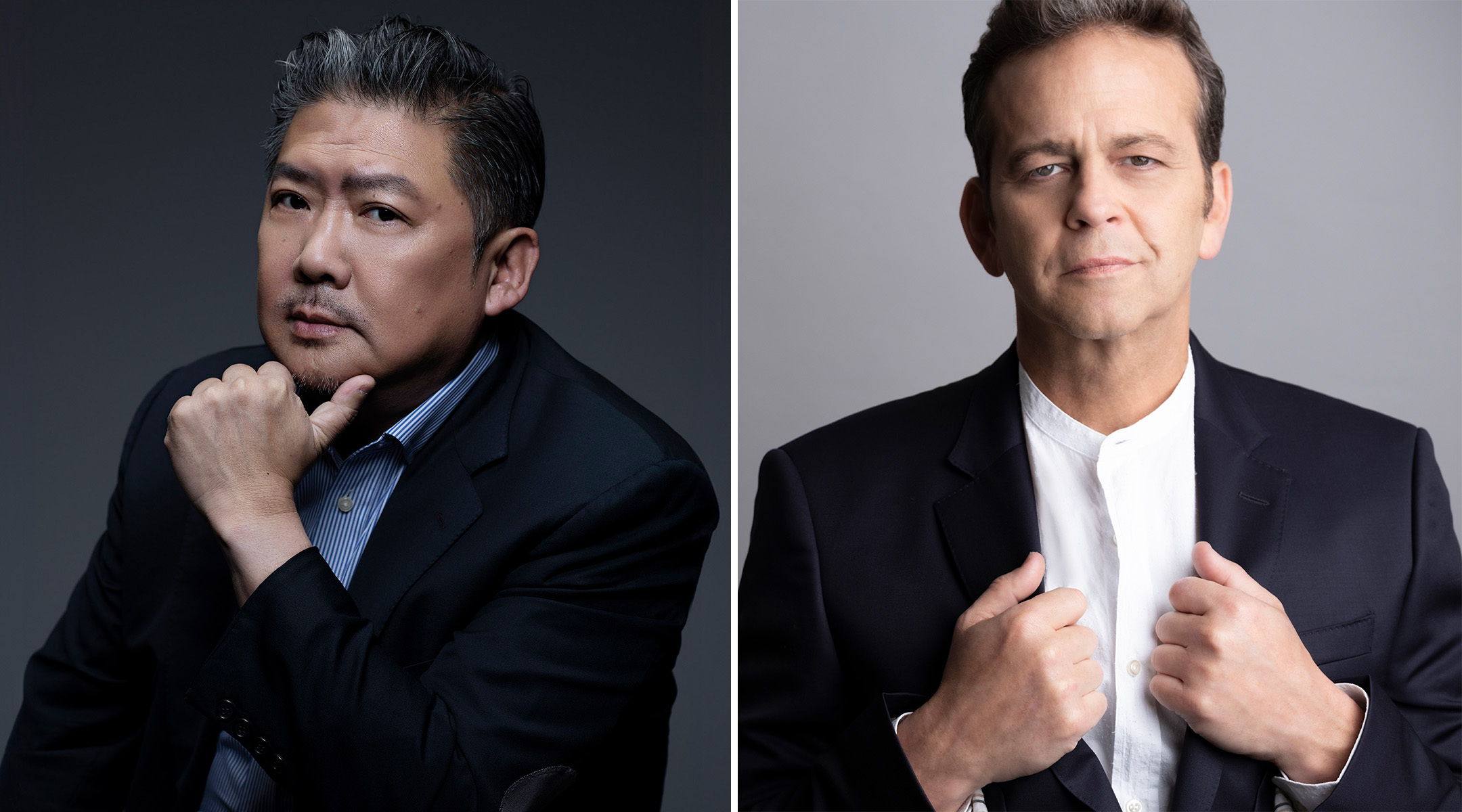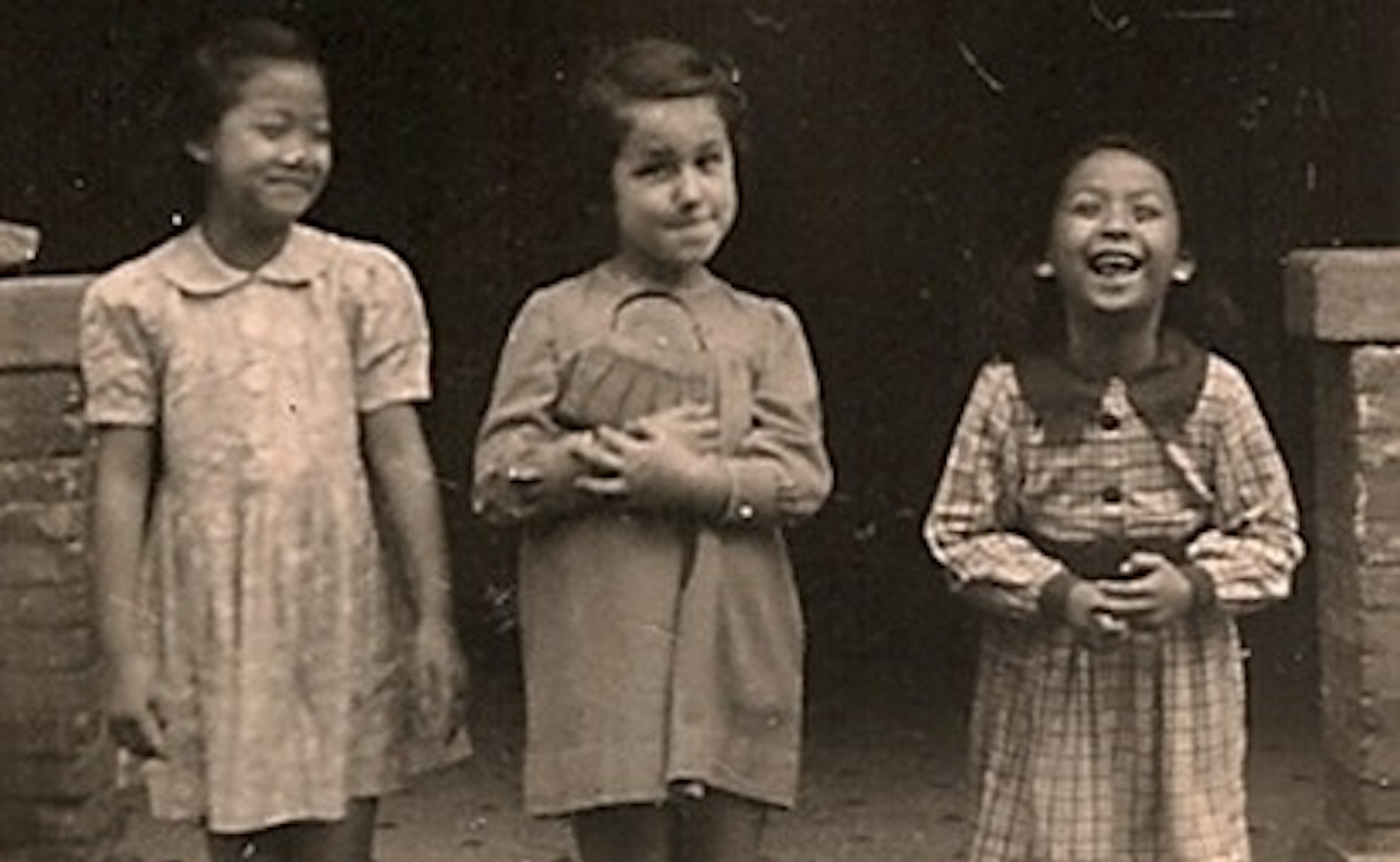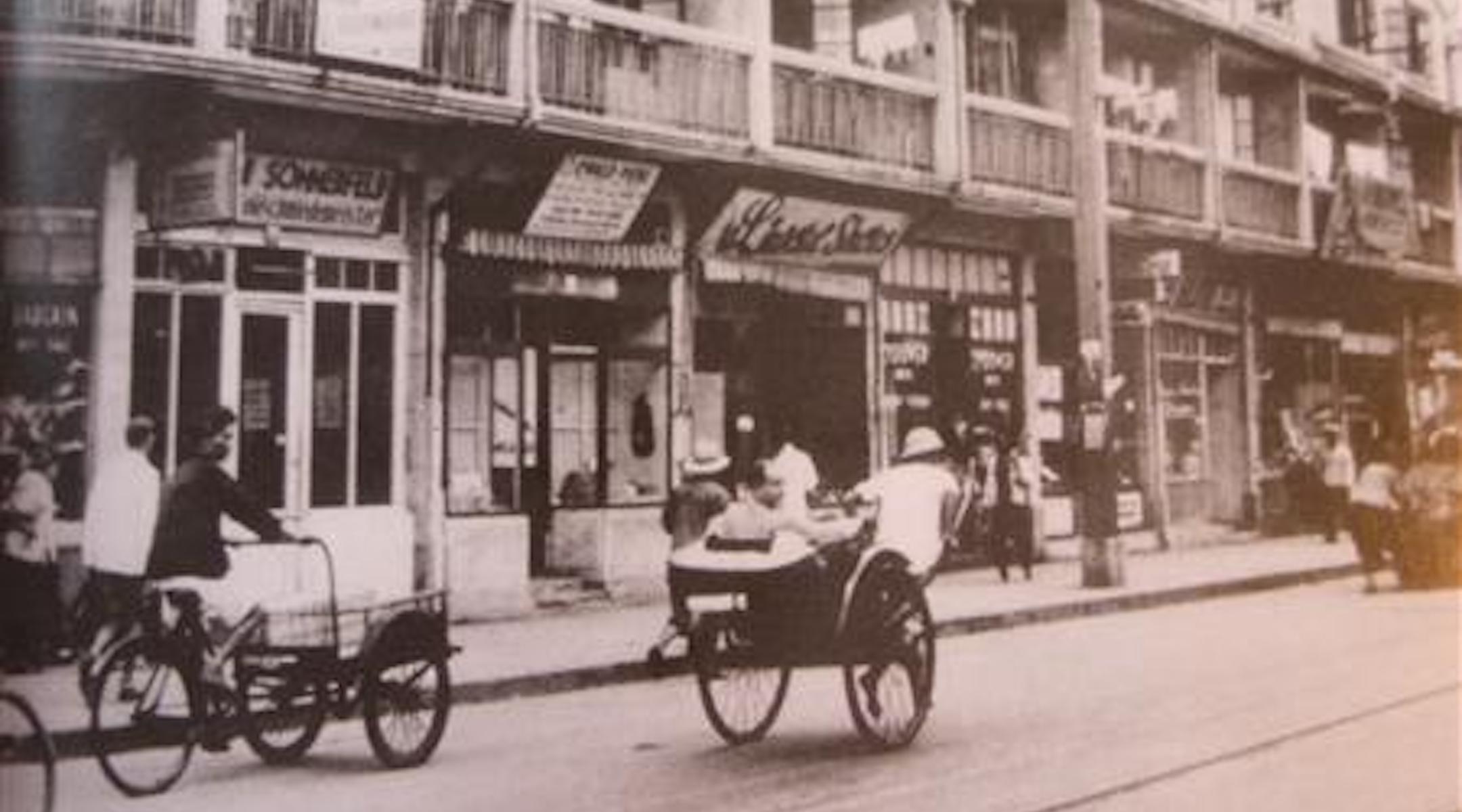(New York Jewish Week) — In the days after Kristallnacht in 1938, two German Jewish brothers flee their Berlin home for a place halfway across the world: Shanghai, where they join a community of thousands of other Jewish refugees — and confront a Chinese population devastated by their own war with Japan.
One brother, Otto, who had been a rabbinical student, is determined to preserve his Jewish heritage and lineage while living abroad. The other, Josef, a doctor, visits a traditional Chinese herbal medicine shop, where he meets and falls in love with a Chinese woman named Lina — much to their families’ dismay.
Josef and Otto’s experience in China is the core of “Emigré,” a new “semi-staged musical drama” that will have its U.S. premiere at the New York Philharmonic at Lincoln Center at the end of the month.
The plot and its characters may be fictional but the broad strokes of the story are very real: At the onset of World War II, around 20,000 European Jews fled to Shanghai, one of the few places at the time where immigrants could arrive without a visa. Much of that small but significant chapter of Jewish and Chinese history is preserved at the Shanghai Jewish Refugees Museum, which, as it happens, held a pop-up exhibition in New York last summer.
“It’s a somewhat esoteric piece of history that even a lot of modern-day Jews don’t know about,” composer Aaron Zigman, who has composed more than 60 film scores, including for the hit “The Notebook,” told the New York Jewish Week.
Zigman, who said he has been a “student of the Holocaust since I was 7,” wrote “Emigré” in collaboration with Long Yu, the conductor of the China Philharmonic and Shanghai Symphony Orchestra. Their collaboration began nearly four years ago when Yu reached out to Zigman about working on a piece together inspired by his grandfather’s stories. Yu’s grandfather, also a composer, was a longtime teacher at the Shanghai Conservatory of Music where, in the 1930s and 40s, many of his friends, students and contemporaries were Jewish.
“It was something that, myself, I couldn’t turn down, and Long Yu stressed that this was his most important project,” Zigman, who is Jewish, explained.

Long Yu and Aaron Zigman are the composers and creators of “Emigré.” (Pan Shiyi, Dario Acosta)
The resulting production is a 90-minute, semi-staged oratorio, a large-scale musical work for orchestra and voices. It’s about two communities united by war and destruction — “One of the things that the Chinese and Jews had very much in common was that they both were a persecuted culture,” Zigman said — and yet, these distinct groups remained wary of each other because of their mutual desire to maintain traditions that were thousands of years old.
The piece was commissioned by both the Shanghai Symphony Orchestra and the New York Philharmonic, which have had a partnership since 2014. Zigman and Yu brought on lyricists Mark Campbell and Brock Walsh to write the libretto.
“It’s really important for the world to see stories of one country taking care of another group of people by letting them come in,” Campbell said. “It may be simplistic to talk that way, but for me, that’s what the message is.”
The oratorio premiered in Shanghai at the Shanghai Symphony Orchestra in November, which Zigman said was “such a meaningful experience.”
“I was so humbled that the audience really took it in a very visceral way and really was into it,” he added.
The same multicultural cast will arrive in New York for the Philharmonic performances later this month, where the concert will be preceded by a talk with Michael Blumenthal, the former U.S. Secretary of the Treasury under President Jimmy Carter, and Lawrence Tribe, the Harvard legal scholar, both of whom were raised in Shanghai as the children of Jewish immigrants. The talk will be moderated by Jonathan Kaufman, a journalist and the author of “The Last Kings of Shanghai: The Rival Jewish Dynasties That Helped Create Modern China,” which Zigman said helped inform the creation of “Emigré.”

A Jewish girl and her Chinese friends in the Shanghai Ghetto during World War II, from the collection of the Shanghai Jewish Refugees Museum. (Wikimedia Commons)
“The survivors of the Holocaust and the survivors of this period of history are reaching the end of an era so to speak,” Zigman said. “I find it very compelling and wonderful that Blumenthal and Tribe have agreed to be interviewed.”
After the two New York performances on Feb. 29 and Mar. 1, the creators hope that it will be produced by other orchestras around the world. A recording of the Shanghai performance under the German record label Deutsche Grammophon will be released sometime this year.
“It’s a total treatise on humanity in so many ways,” Zigman added. “I always find it amazing when I conduct an orchestra that is filled with all kinds of melodies and cultures and religions — music just speaks a language all unto itself.”
Performances of “Emigré” are on Feb. 29 at 7:30 p.m. and Mar. 1 at 8:00 p.m. Tickets range from $118-$382 and include access to the pre-concert talk. Find more information here.
The New York Jewish Week brings you the stories behind the headlines, keeping you connected to Jewish life in New York. Help sustain the reporting you trust by donating today.





